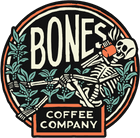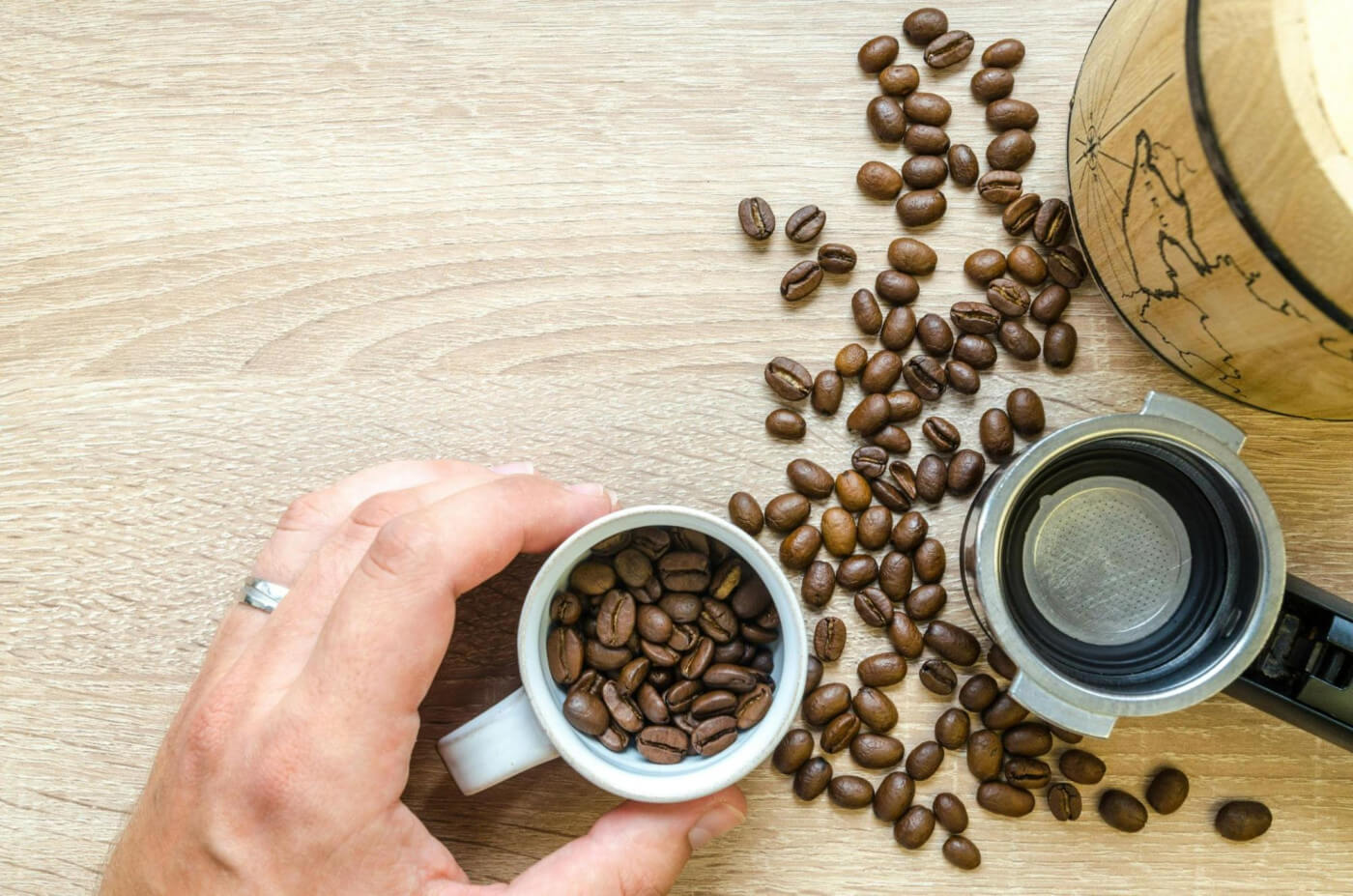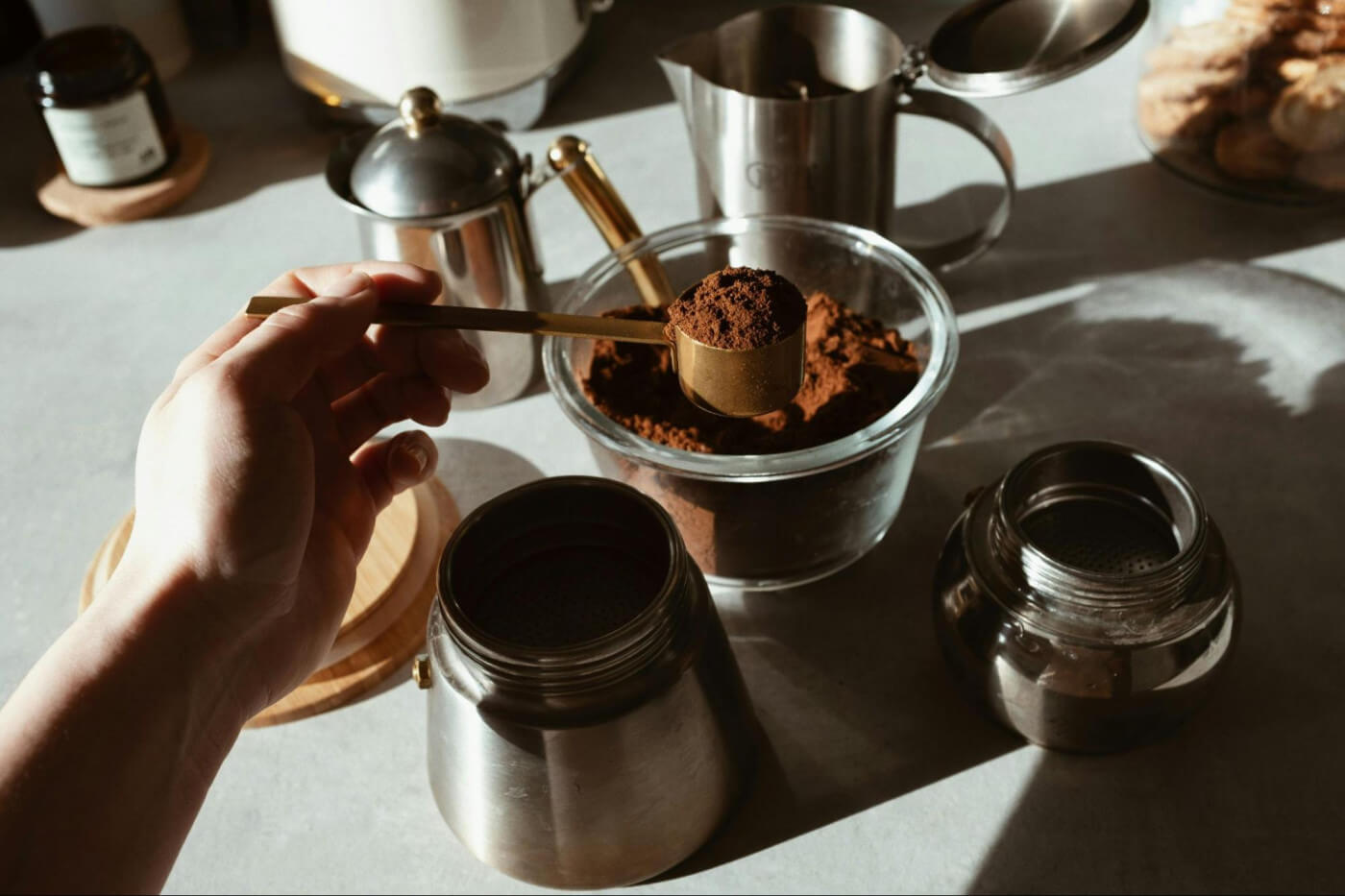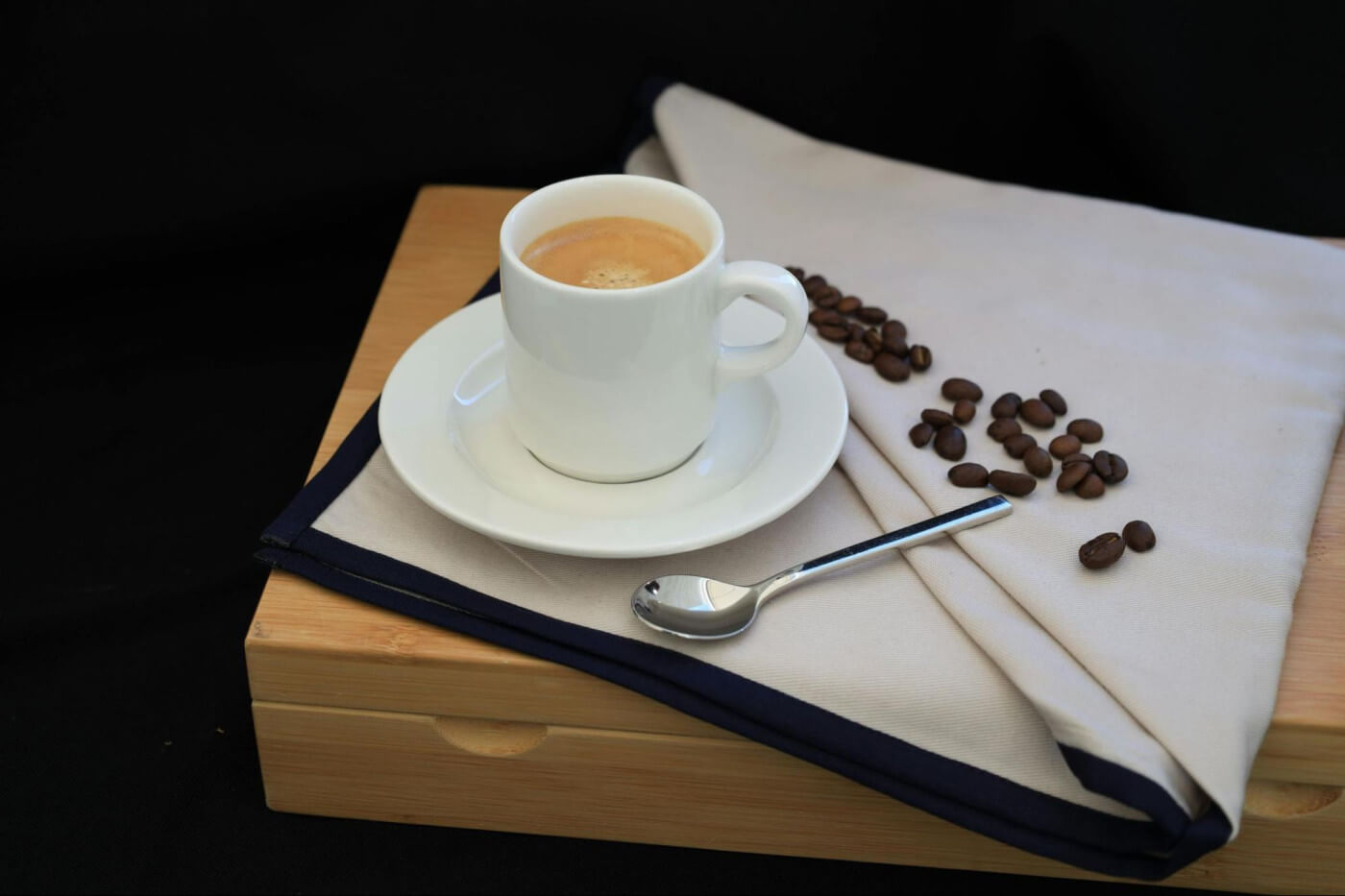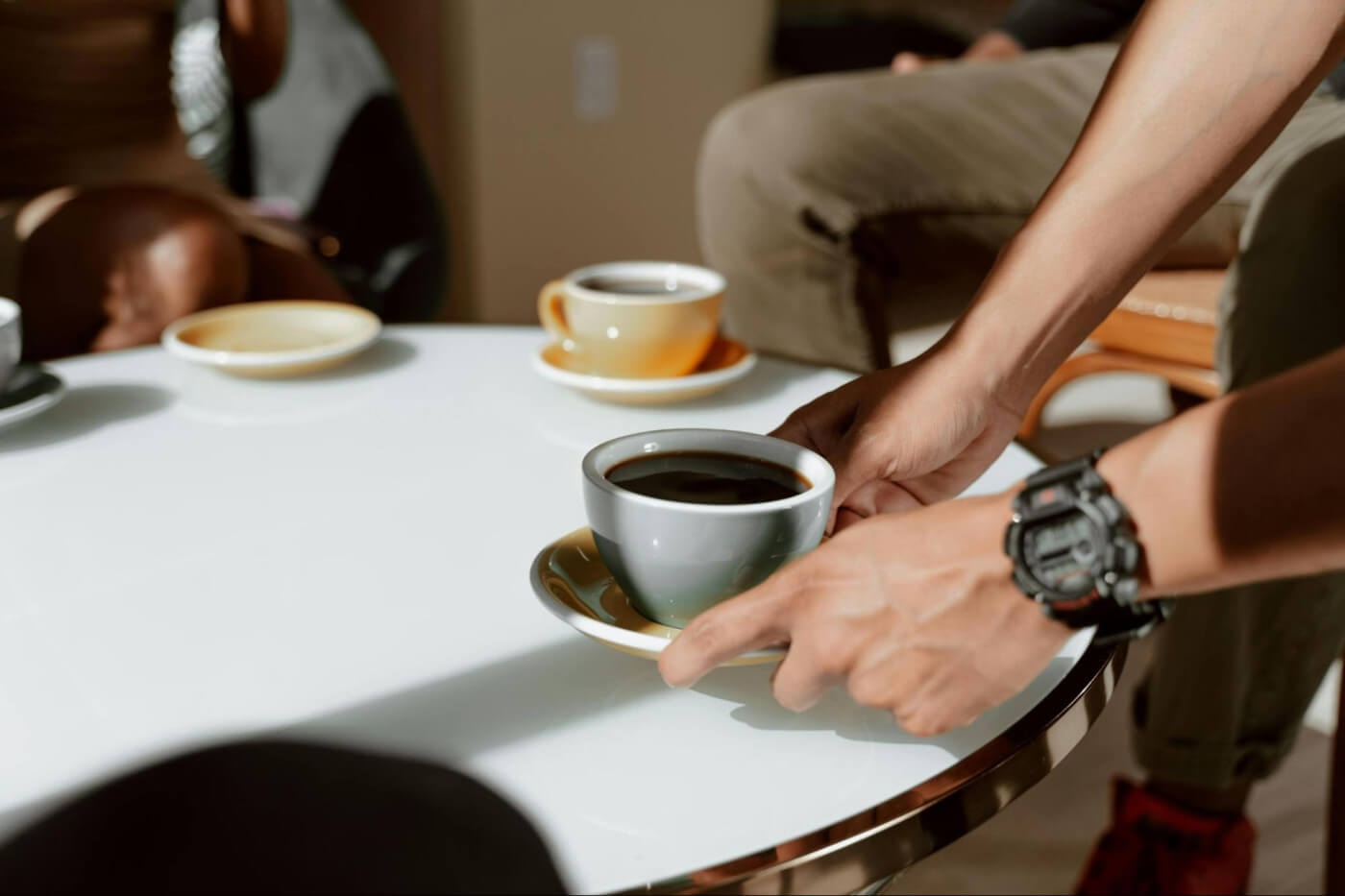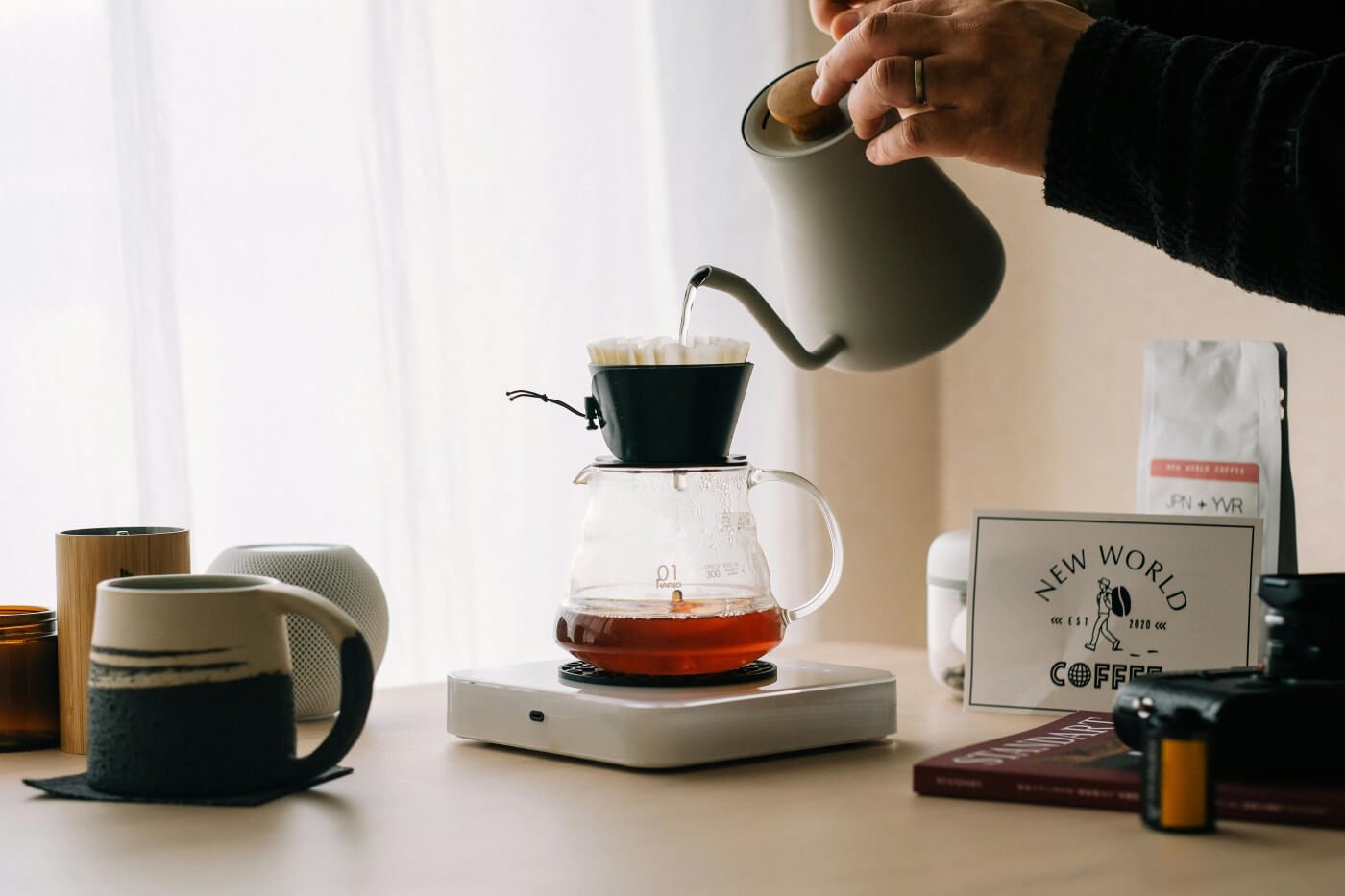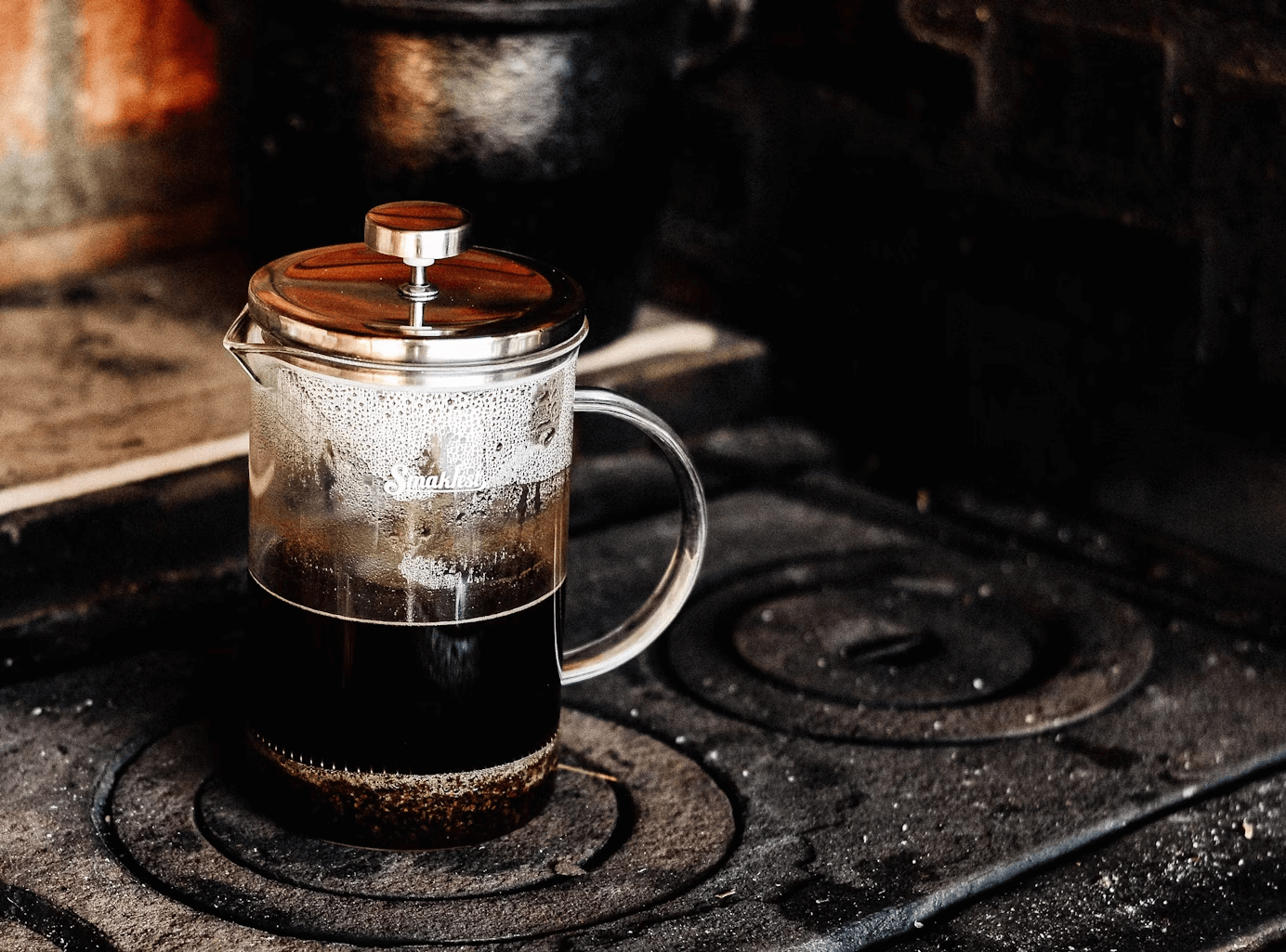Finding the perfect balance of ground coffee for your cup can seem like a quest for the holy grail. You've got your coffee beans and your water, but how much of those coffee grounds do you actually need?
Too little and your brew lacks flavor; too much and you're in for a bitter experience. We're here to guide you through the art of measuring your coffee to perfection. With the right knowledge, achieving that ideal brew will no longer be a mystery, but a daily delight.
The Basics of Coffee Measurement
Knowing how much coffee per cup to use is crucial for brewing that perfect cup of coffee. The golden rule? It all starts with the right coffee-to-water ratio. For the uninitiated, navigating through coffee grounds and water measurements can be daunting. Yet, it's this balance that determines the strength and flavor profile of your brewed coffee.
Here's a simple breakdown to demystify the process:
- Standard Measurement: Typically, the consensus is to use 1 scoop (2 tablespoons) of coffee grounds for every 8 ounces of water for a balanced cup. This is your starting point for a standard cup of coffee.
- Adjust to Taste: Not everyone's taste buds are the same. Some might prefer their coffee stronger, necessitating more coffee scoops, while others might lean towards a lighter cup, requiring less.
Why does this matter? Coffee beans are packed with flavors and oils that are extracted during the brewing process. The amount of coffee grounds you use directly influences how much of these flavors make it into your final cup. Too little, and you might find your coffee lacking depth. Too much, and you could end up with a brew that's overpoweringly bitter.
Start with the standard ratio of coffee grounds to water, then adjust according to your taste preferences. Experimentation is key, and soon, you'll find your sweet spot for the ideal cup of brewed coffee.
Health Highlight: Coffee is a rich source of antioxidants. These beneficial compounds can help protect your cells from damage and contribute to overall health. Enjoying your ideally brewed cup isn't just a pleasure for the taste buds but also a boon for your well-being. |
Dialing in Your Coffee Ratios
Before diving into the nitty-gritty of how much coffee per cup you'll need, let's take a quick moment to brush up on the basics of brewing coffee. Understanding or refreshing your knowledge of the fundamentals can make all the difference in achieving that perfect cup.
When it comes to brewing coffee, the ratio of water to coffee grinds is what dictates the strength and coffee flavor of your brew. Whether you're using a coffee pot or any other method, getting this ratio right is key to your coffee satisfaction.
Here's a simple comparison table to help you visualize how different ratios affect the strength of your coffee:
Brew Strength | Ratio | Description |
Light | 1:18 or more | For a lighter taste. |
Medium | 1:16 | For a balanced, rich flavor. |
Strong | 1:15 or less | For a bold, robust cup. |
So, how many scoops of coffee for that perfect cup? It all boils down to how strong you like your coffee. For a balanced, standard cup of coffee (about 8 ounces), using a ratio of 1:16 (one scoop of coffee to 16 ounces of water) is a solid starting point.
This should give you a beautifully balanced coffee flavor. Remember, these are just guidelines. The beauty of coffee brewing is in the experimentation. Adjust the amount of coffee grinds based on your taste preference and the strength you desire.
Tools for Measuring Coffee
Getting the right amount of coffee per cup doesn't have to be a guessing game. With the right tools, you can ensure consistency and perfection in every brew. Here's a rundown of essential tools to help you measure your coffee accurately:
- Digital Scale: For those who take their coffee seriously, a digital scale is a game-changer. It allows you to measure the coffee grounds by weight, which is the most accurate method. This is especially useful when you're aiming for precision in stronger or weaker brews.
- Measuring Spoons: A more accessible option, measuring spoons are great for scooping out the perfect amount of coffee. While not as precise as a scale, they're quick and easy to use. Just remember, a standard measure is 2 tablespoons for every 6-8 ounces of water.
- Coffee Scoop: Many coffee makers come with their own scoop, designed to complement the machine's brewing capacity. These scoops are typically equivalent to 2 tablespoons, making them handy for daily use.
- Graduated Measuring Cup: Ideal for measuring water, a graduated measuring cup ensures you're adding the right amount of water to your coffee pot or maker, crucial for achieving the desired coffee strength.
Each tool has its place in the coffee brewing process, whether you're preparing a single cup of coffee or a full coffee pot. By using these tools, you can take the guesswork out of your measurements and enjoy a consistently delicious brew every time.
Fun Fact: The world's first webcam was invented at the University of Cambridge for a very caffeine-centric reason. In 1991, scientists set up a live camera to monitor the coffee pot in their lab's break room. This way, they could see if there was coffee available before making the trip. The webcam provided a live picture of the coffee pot to all desktop computers in the lab, marking a pivotal moment in internet history. |
The Impact of Grind Size on Your Brew
Grind size plays a pivotal role in determining the perfect coffee ratios and deciding how many scoops of ground coffee per cup you'll need. Mastering this balance is essential for achieving your ideal brew.
- Fine Grinds: Ideal for espresso or Turkish coffee, fine grinds have a texture like powdered sugar. Because of their small size, they have a large surface area that interacts with water quickly, extracting flavor fast. This means you'll need to adjust your brewing time to avoid over-extraction, which can lead to a bitter taste. For espresso, sticking to the recommended coffee ratios without altering how many scoops of coffee per cup is crucial due to the pressurized brewing method.
- Medium Grinds: Perfect for drip coffee makers and pour-overs, medium grinds look like table salt. They offer a balanced extraction rate, making them forgiving and versatile. This grind size works well with the standard coffee ratio, ensuring a well-rounded flavor profile.
- Coarse Grinds: Coarse grinds are best suited for French press or cold brew, resembling coarse sea salt. Their larger size slows down the water's extraction process, requiring longer brewing times, perfect for cold brew coffee. With these, you might find yourself adjusting how many scoops of coffee per cup slightly to achieve the desired strength without over-extraction.
Brewing Methods and Their Measurements
Each brewing method has its unique requirements for coffee ratios, affecting the taste and strength of your brewed coffee. Whether you're using a French press, drip coffee machine, or making cold brew coffee, the impact of coffee-to-water ratios and grind size on your brew is crucial. Here's a quick guide on brewing methods and their measurements to get you started:
Brewing Method | Coffee-to-Water Ratio | Grind Size | Notes |
French Press | 1:15 | Coarse | Rich, full-bodied flavor. |
Drip Coffee | 1:17 | Medium | Clean, consistent cup. |
Espresso | 1:2 | Very Fine | Intense, concentrated shot. |
Cold Brew | 1:8 | Coarse | Smooth, mild coffee. |
AeroPress | 1:15 | Fine to Medium | Strong, quick brew. |
Pour Over | 1:17 | Medium | Precise, clear flavor. |
Advanced Tips for Perfecting Your Brew
Taking your coffee brewing to the next level involves more than just the basics. Here are some advanced tips to help you perfect your brew, enhancing every cup of coffee you make.
Water Quality Matters
The water you use in your coffee maker can significantly affect the taste of your coffee. Hard water can lead to mineral buildup in your machine and affect the extraction process, while chlorine-treated tap water can alter the flavor profile of your coffee beans. For the best results, use filtered or bottled water in your coffee maker to ensure the purest taste.
Temperature Control
The temperature of the water used to brew your coffee is crucial. Water that's too hot can over-extract the coffee grounds, leading to bitterness, while water that's not hot enough won't extract enough flavor from the coffee beans. Aim for a water temperature between 195°F to 205°F for optimal extraction.
The Freshness of Coffee Beans
The freshness of your coffee beans plays a vital role in the quality of your cup of coffee. Freshly roasted coffee beans, ground just before brewing, will give you the most flavorful and aromatic cup. Try to use your coffee beans within a month of their roast date and store them in an airtight container to maintain their freshness.
Experiment with Ratios
Finding the perfect balance between coffee scoops and water can take some experimentation. Don't be afraid to adjust the amount of ground coffee you use in your coffee maker. Starting with the standard ratio of 1 scoop (2 tablespoons) of coffee grounds per 8 ounces of water is a good baseline, but tweaking this ratio can help you customize the strength and flavor to your liking.
Incorporating these advanced tips into your brewing process can elevate your coffee experience, turning a simple cup of coffee into a gourmet treat.
Sustainability Tip: Did you know that used coffee grounds have a second life beyond your cup? They can be repurposed as a natural fertilizer for your garden, a deodorizing agent for your refrigerator, or even as a natural scrub for your skin. Embracing sustainability in your coffee routine not only benefits the environment but also adds value to your daily grind. |
Elevate Your Coffee Experience with Bones Coffee Company
Mastering the art of coffee brewing is a journey of discovery, from understanding the basics of measurements and grind sizes to exploring advanced techniques like water quality and temperature control. Each step offers an opportunity to enhance the flavor and enjoyment of your daily cup. Embrace the process, experiment with ratios, and always seek the freshest beans for the best results.
Ready to elevate your coffee experience even further? Explore the unique and flavorful coffee products we offer at Bones Coffee Company. Dive into a world of rich aromas and exquisite tastes that await you.
